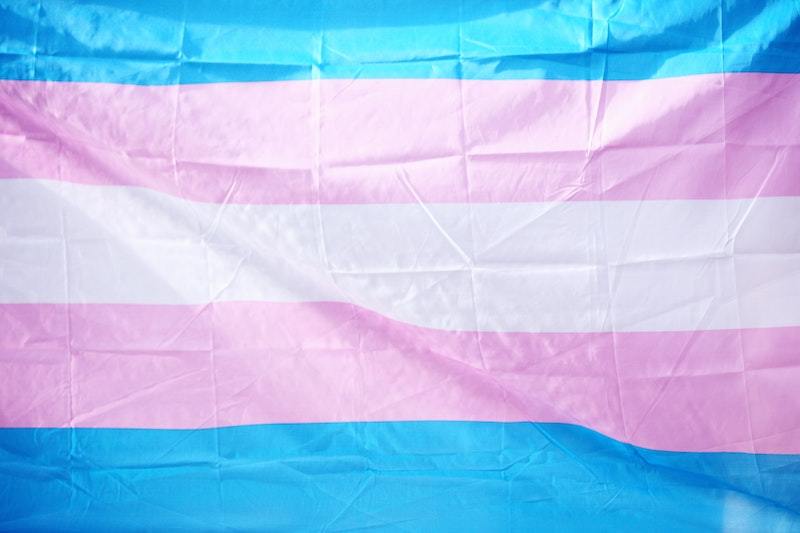The Lifesaving Impact of Gender-Affirming Care

Adolescence is a time of self-discovery, of finding and expressing who you are. For many, it’s also the time when mental health issues emerge, and for trans and nonbinary (TNB) youth, this period of development is often filled with challenges that extend beyond the typical trials of adolescence. As we navigate the gender diversification and newfound awareness of the mental health struggles youth increasingly face in the United States, it’s evident that early gender-affirming care is crucial to supporting the mental health and lives of vulnerable trans and nonbinary youth.
TNB youth often face significantly higher rates of depressive symptoms than their cisgender peers at a staggering 41.3% compared to 11.8% respectively. This disparity is also present in the rates of suicide attempts: Trans youth had an attempt rate nearly five times higher than that of their cisgender peers. For many TNB adolescents, mental health and gender identity are related due to the social stigma and discrimination that come with identifying this way. Over half of TNB students in K-12 schools who are publicly open about their gender identity are victims of verbal harassment. One in four experience physical attacks. Those who are not publicly trans or nonbinary may face feelings of gender dysphoria or a sense of unease regarding the mismatch between assigned sex and gender identity. Untreated, these feelings can lead to severe emotional and psychological distress. These jarring statistics reveal a mental health disparity and a need for additional support.
Gender-affirming care accessed early in life creates the potential for these alarming statistics to be lowered. Research suggests that puberty blockers and/or gender-affirming hormones are critical for ensuring the mental health and the very lives of transgender and nonbinary young people. TNB youth who received gender-affirming care between the ages of 13 and 20 exhibited 60% lower odds of moderate to severe depression symptoms and 73% lower odds of suicidality compared to those who had not begun puberty blockers or hormone therapy over a 12-month period. As these adolescents reached adulthood, it was found that access to these treatments was associated with lower odds of lifetime suicidal ideation. These findings prove that early care is critical to the mental well-being and quality of life of these young people and the adults they grow into. Without medical interventions, the internalized challenges these individuals face may wear on them until unfortunate drastic measures are taken.
However, some argue that taking medication to alter your hormonal level or block puberty is a huge decision and, for a young person, a life-changing one. If a young person’s feelings of gender confusion are temporary, as some believe they could be, and drastic measures are taken to change one’s body so early in life, there could be long-term consequences for an individual. Should decisions be made in adolescence that could drastically impact one’s adulthood?
This question has plagued lawmakers, medical professionals, and individuals alike. As the trans and nonbinary community gains visibility, new ideas and opinions are often formed quickly and concretely — especially opinions regarding TNB youth, one of the more vulnerable populations within this community. The argument that these minors cannot and should not make life-altering decisions is one held by many individuals and is expressed anywhere from opinion pieces to anti-trans legislation.
However, receiving gender-affirming care is not just about the livelihood of these youth; it is about ensuring their very survival into adulthood at all. Parental testimonials allow a more personal view into how their children’s lives have been changed, or even saved, by early gender-affirming care. A mother of a trans son from Connecticut says that “without hormones and surgery, my teen son would probably have committed suicide.” Another father says that “if [puberty blockers and hormones] were not available until 18, I would have buried my child 1-2 years ago.” Every parent fears losing their child, but for the parents of TNB youth, their fears may become a reality as anti-trans laws are gaining popularity and restrictions on puberty blockers and hormones are tightened.
Gender-affirming care is not a desire but a necessity for TNB young people. Without it, their mental health and, in many cases, their lives are at risk. By addressing mental health disparities and recognizing the importance of taking timely measures in gender-affirming medical care, we gain a collective responsibility to ensure that every young person has access to the resources necessary for a promising future.
More articles by Category: LGBTQIA
More articles by Tag: Health, Health care


























